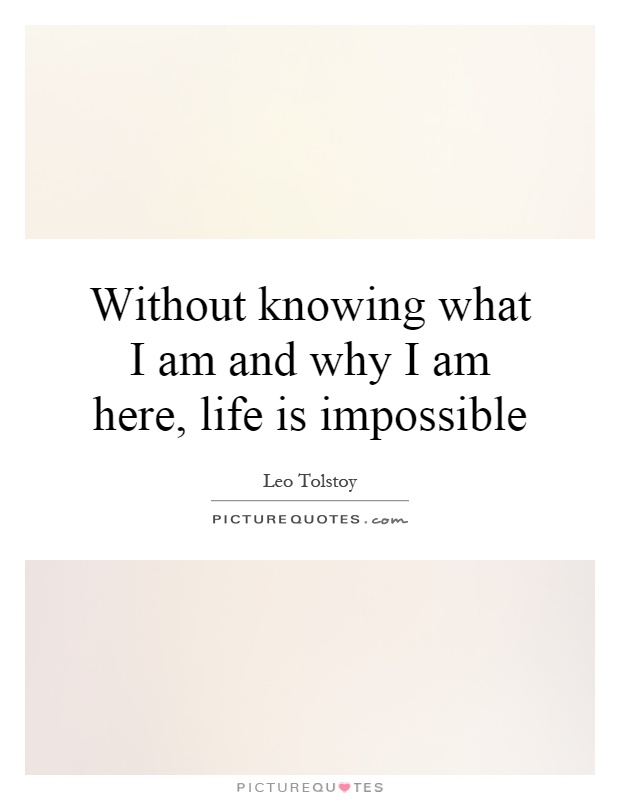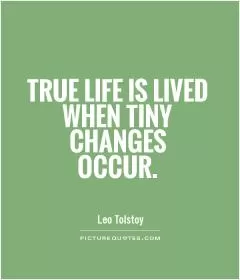Without knowing what I am and why I am here, life is impossible

Without knowing what I am and why I am here, life is impossible
Leo Tolstoy, one of the greatest novelists in history, was a man who grappled with questions of existence and purpose throughout his life. His works, such as War and Peace and Anna Karenina, are filled with characters who struggle to find meaning in their lives and come to terms with their own mortality. Tolstoy himself was no stranger to these existential dilemmas, and his own search for meaning and purpose is reflected in his writing.The quote “Without knowing what I am and why I am here, life is impossible” encapsulates Tolstoy’s belief that understanding one’s own identity and purpose is essential for living a fulfilling and meaningful life. For Tolstoy, the search for meaning was not just a philosophical exercise, but a deeply personal and spiritual quest. He believed that without a clear understanding of one’s own identity and purpose, life becomes meaningless and devoid of true fulfillment.
Tolstoy’s own search for meaning led him to explore various philosophical and religious traditions, including Christianity, Buddhism, and Hinduism. He was deeply influenced by the teachings of Jesus Christ, particularly the Sermon on the Mount, which emphasized the importance of love, compassion, and forgiveness. Tolstoy believed that living a moral and ethical life was essential for finding meaning and purpose in a world filled with suffering and injustice.
In his later years, Tolstoy became increasingly disillusioned with the materialism and superficiality of modern society. He renounced his wealth and privilege, and devoted himself to a life of simplicity and service to others. Tolstoy’s commitment to living a life of integrity and authenticity was a reflection of his belief that true happiness and fulfillment could only be found by living in accordance with one’s deepest values and beliefs.












 Friendship Quotes
Friendship Quotes Love Quotes
Love Quotes Life Quotes
Life Quotes Funny Quotes
Funny Quotes Motivational Quotes
Motivational Quotes Inspirational Quotes
Inspirational Quotes